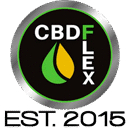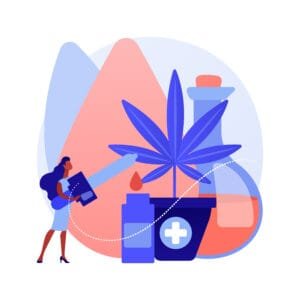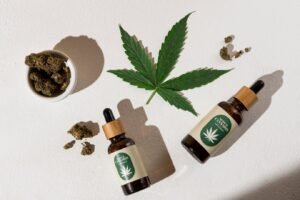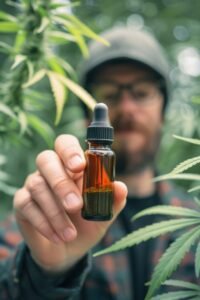Does CBD Get You High? The Truth About CBD and Psychoactive Effects
The world of cannabis-derived compounds can be confusing, especially when it comes to understanding the effects of different cannabinoids. One of the most…
The world of cannabis-derived compounds can be confusing, especially when it comes to understanding the effects of different cannabinoids. One of the most frequently asked questions, and a major point of concern for many, is: Does CBD get you high? The answer, in short, is no. However, to truly understand why, and to dispel any lingering misconceptions, we need to delve deeper into the nature of CBD and its interaction with our bodies. This comprehensive guide will explore the truth about CBD psychoactive effects and help you navigate the complexities surrounding this popular wellness compound.
Unpacking the Confusion: CBD vs. THC
The confusion comes from CBD and THC being cannabinoids in cannabis. While they share a common origin, their chemical structures and effects on the human body are vastly different.
THC is the main psychoactive compound in cannabis. It directly binds to cannabinoid receptors (CB1 receptors) in the brain, which are part of the endocannabinoid system. This direct interaction triggers the release of neurotransmitters that produce the characteristic “high” associated with marijuana use, including feelings of euphoria, altered perception, and sometimes anxiety.
CBD, on the other hand, interacts with the endocannabinoid system in a much more indirect way. It doesn’t bind directly to CB1 receptors. Instead, it’s believed to influence them and other receptors in the system, potentially modulating their activity. This indirect interaction is why CBD doesn’t produce the intoxicating effects associated with THC.
Understanding Psychoactive Effects: More Than Just “Getting High”
It’s important to clarify what we mean by “psychoactive.” In its broadest sense, a psychoactive substance is any substance that affects the mind, mood, or behavior. This definition could technically include many everyday substances like caffeine or even certain foods.
However, when people ask if CBD is psychoactive, they are usually concerned about experiencing the intoxicating and mind-altering effects associated with drugs like THC. In this context, CBD is not psychoactive. It won’t cause the feelings of euphoria, altered sensory perception, impaired motor skills, or anxiety that can come with THC consumption.
The Science Behind CBD’s Non-Intoxicating Nature
Research suggests that CBD’s mechanism of action involves several pathways within the endocannabinoid system and beyond. Some studies indicate that CBD might even counteract some of the psychoactive effects of THC when both compounds are present.
Here’s a breakdown of why CBD doesn’t get you high:
- No Direct Binding to CB1 Receptors: As mentioned earlier, CBD doesn’t strongly bind to the CB1 receptors in the brain responsible for the psychoactive effects of THC.
- Modulatory Effects: CBD is thought to influence the endocannabinoid system by interacting with other receptors and enzymes, potentially promoting balance and homeostasis within the body.
- Potential THC Counteraction: Some research suggests that CBD can interfere with THC’s ability to bind to CB1 receptors, potentially reducing its psychoactive effects.
Why the Misconception About CBD Psychoactive Effects Persists
Despite the scientific evidence, the misconception that CBD is psychoactive persists for several reasons:
- Association with Cannabis: CBD is derived from cannabis plants, which are often associated solely with THC and its intoxicating effects. This association leads to a natural assumption that all compounds from the plant will have similar effects.
- Lack of Regulation and Mislabeling: In the early days of the CBD market, there were instances of products being mislabeled or containing higher levels of THC than advertised. This could have led some users to experience psychoactive effects unintentionally.
- Anecdotal Reports and Misinformation: Online forums and anecdotal reports can sometimes spread misinformation about CBD’s effects. It’s crucial to rely on scientific research and reputable sources for accurate information.
- Broad Definition of “Psychoactive”: As discussed earlier, the broad definition of psychoactive can lead to confusion. While CBD does affect the brain and body, its effects are not intoxicating.
The Benefits of CBD Without the High
One of the major appeals of CBD is its potential therapeutic benefits without the unwanted psychoactive effects of THC. Many people use CBD for its potential to help with:
- Anxiety and Stress: CBD may have calming and anxiolytic properties.
- Pain and Inflammation: CBD may help reduce pain and inflammation through its interaction with the endocannabinoid system.
- Sleep Issues: Some users report that CBD helps them sleep better.
- Seizures: CBD has shown promise in treating certain types of epilepsy.
These potential benefits, coupled with the lack of intoxication, make CBD an attractive option for individuals seeking natural wellness solutions.
Choosing the Right CBD Product: Pay Attention to THC Content
While pure CBD isolate and cbd roll on for pain should contain no THC, full-spectrum and broad-spectrum CBD products may contain trace amounts of THC.
- Full-Spectrum CBD: Contains all the naturally occurring compounds in the cannabis plant, including trace amounts of THC (usually below 0.3% in accordance with federal regulations in many regions). While this amount is generally not enough to cause a “high,” it’s important to be aware of for those who are particularly sensitive to THC or undergo drug testing.
- Broad-Spectrum CBD: Contains most of the beneficial compounds found in the cannabis plant but has undergone a process to remove THC.
- CBD Isolate: Contains only pure CBD with no other cannabinoids or terpenes.
When choosing a CBD product, it’s crucial to:
- Check the Certificate of Analysis (COA): A COA from a third-party lab will verify the cannabinoid content of the product, including the levels of CBD and THC.
- Understand the Type of CBD: Determine whether you prefer isolate, broad-spectrum, or full-spectrum CBD based on your individual needs and preferences.
- Start with a Low Dose: If you’re new to CBD, it’s always recommended to start with a low dose and gradually increase it until you find what works best for you.
Conclusion: CBD is Not Intoxicating
To reiterate, CBD does not get you high. Its interaction with the endocannabinoid system is fundamentally different from that of THC, the primary psychoactive compound in cannabis. While CBD may have subtle effects on mood and well-being, it will not produce the intoxicating, mind-altering effects associated with marijuana. Understanding the distinction between CBD and THC is crucial for making informed decisions about using CBD products for wellness purposes.
CBD Psychoactive Effects: Frequently Asked Questions (FAQ)

1. Will taking CBD make me feel euphoric or “stoned”?
No, CBD will not make you feel euphoric or “stoned.” These sensations are primarily caused by THC, which interacts directly with CB1 receptors in the brain. CBD does not have this direct binding affinity and, therefore, does not produce these intoxicating effects.
2. Can CBD show up on a drug test and cause a positive result for marijuana?
Pure CBD isolate should not cause a positive drug test. However, full-spectrum CBD products contain trace amounts of THC (below the legal limit in many regions). While these amounts are usually not enough to cause a “high,” they could potentially trigger a positive result on a sensitive drug test, especially with regular and high doses. Broad-spectrum CBD is a safer option for those concerned about THC. Always check the COA of your product.
3. Are there any mental side effects associated with taking CBD?
Generally, CBD is well-tolerated, and significant mental side effects are rare. Some individuals may experience mild drowsiness or changes in mood, but these are typically not the same as the intoxicating effects of THC. If you experience any concerning mental side effects, discontinue use and consult with a healthcare professional.
4. Can I drive or operate heavy machinery after taking CBD?
Yes, unlike THC, CBD does not impair cognitive function or motor skills. Therefore, it is generally safe to drive or operate heavy machinery after taking CBD. However, if you are new to CBD, it’s always wise to start with a low dose and see how it affects you personally before engaging in such activities.
5. If CBD isn’t psychoactive in the traditional sense, does it still affect the brain?
Yes, CBD does interact with the brain and the endocannabinoid system, but its effects are different from those of THC. CBD is believed to influence various receptors and neurotransmitters, potentially contributing to its reported benefits like reduced anxiety, pain relief, and improved sleep. These effects are considered therapeutic rather than intoxicating.







